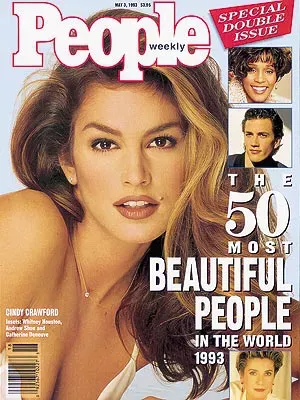Sticks and stones
These are far different times we live in today than any generation of human beings has ever had to endure. It is easier than ever to communicate. It is easier than ever to judge and criticize. It is easier than ever to hurt people’s feelings.

These are far different times we live in today than any generation of human beings has ever had to endure. It is easier than ever to communicate. It is easier than ever to judge and criticize. It is easier than ever to hurt people’s feelings.
Jonah Hill is one of the funniest actors of our generation, having starred in some of the best comedies of the past two decades like Superbad, Knocked Up, 21 Jump Street, and The 40 Year Old Virgin. His humor is not for everybody, but it is right up my alley.
But the more I have come to find out about Hill, the more I see him falling into the category of Robin Williams, Sarah Silverman, Matthew Perry, and Howie Mandel (whose mental health challenges I have already written about). That category is funny people who fans think have everything going for them and are always happy. Their energy and joy of life on stage certainly must transfer over to their everyday lives. We couldn’t be more wrong.
I don’t know why I am always surprised when I learn of celebrities struggling with mental health issues. They are humans just like you and I. But even still, I was caught off guard when I watched Hill’s documentary, Stutz, about his relationship with his psychiatrist. That documentary deserves an article of its own, which I will get to soon.
The documentary centers around Jonah Hill’s struggles with his weight. Similar to funny actors like John Goodman, Seth Rogen, Drew Carey, Zach Galifianakis, Rebel Wilson, and Melissa McCarthy, Jonah Hill has struggled with being referred to as the funny, fat person.
What all those actors have in common is that they were considered, fairly or unfairly, funnier when they were fat. Like Chris Farley (“fat guy in a little coat”), their obesity was part of their charm and humor. It is what made them box office hits. When they lost their weight, somehow the audiences didn’t find them as funny as before. John Goodman could never portray Babe Ruth or Fred Flintstone if he looks trim like he does now.
Jonah Hill is not oblivious to this. He is very up on popular culture. Much of his humor revolves around it. So a large part of the documentary revolves around Hill’s difficulties balancing his health with his professional image. It also revolves around his difficulties handling media and fan scrutiny of his weight.
Like I mentioned earlier, this generation faces challenges which never existed prior to this century. Sure, television and radio have been around for close to 100 years. Newspapers and muckrakers have been around for a couple centuries longer. But social media is a beast like no other. Heck, 30 years ago there was zero chance anybody would read any article I wrote. I’d have to hope to get published by someone in some journal. Now there is about a .0003% chance, thanks to social media. All I have to do is hit the “send” button and all my thoughts are out there for anyone to see.
And while my singular opinion shouldn’t matter to someone like Jonah Hill, the cumulative effect of tens of thousands of people saying the same thing can matter. In Stutz, Hill sits with - and has a conversation with - a cardboard cutout of his obese self.
Things came to a head recently when social media went crazy with pictures of an emaciated Jonah Hill walking on a street that went viral. I refuse to post the pictures here, but you can find them easy enough. But that is what got me thinking about this subject.
You can only imagine Hill calling Stutz the day the pictures started circulating to set up an emergency appointment. Criticism of his weight, good or bad, is an immediate trigger for someone like Hill. And why should people care? Not why should Hill care about his critics, because that is human nature. But why should people care about Hill’s looks?
Traditionally, fat shaming has been applied more to women, particularly models. The argument has always been that young girls look at these skinny models in magazines and set unrealistic expectations for themselves. When they can’t achieve “model” looks, they become anorexic, bulimic, depressed, and even suicidal.

But, obviously, the same can apply to men. There are obvious reasons for losing weight. It improves your health by putting less strain on your heart. You can be more active. You have better self-esteem.
But do you really like yourself better? There are thousands of reasons why you should. But when you have always been known as the fat, funny guy, and if you are no longer fat, does that mean you are no longer funny too?
Sticks and stones can break my bones, but words will never hurt me. I put that saying right up there with “the customer is always right” as two of the dumbest, most accepted sayings of all-time.
Words can hurt. They can even kill. I worry for Jonah Hill. Fortunately, he is getting help and he is being very public about it. That takes incredible courage. It is one thing to be courageous for seeking help, it is another thing to put it all out there for the world to see. Hopefully, that is indicative of Hill’s inner strength and gives me hope that Hill won’t do anything stupid. We have an obligation, no matter how anonymous and irrelevant we are, to think before hitting the send button on any comments we send out into cyberspace.

